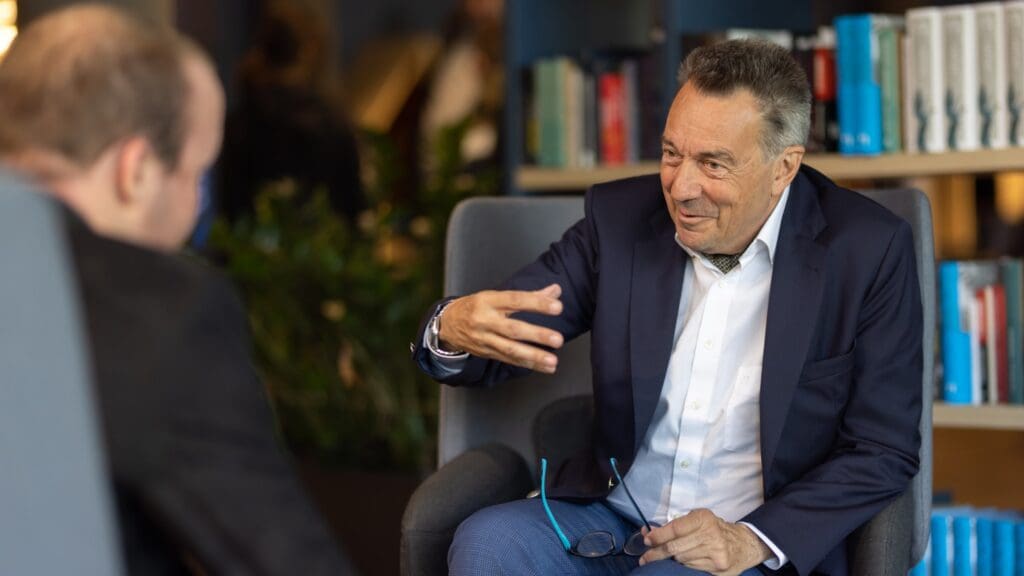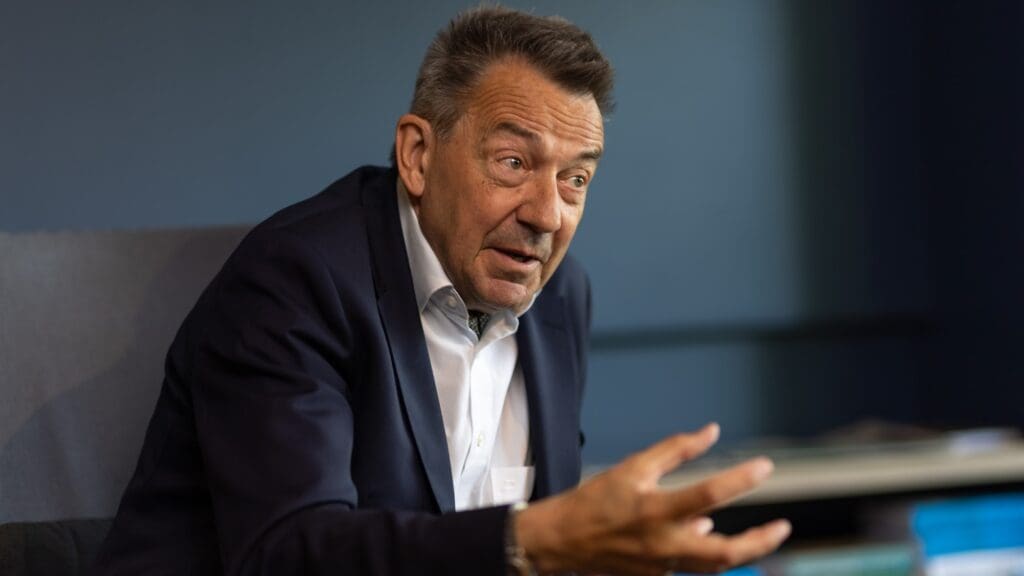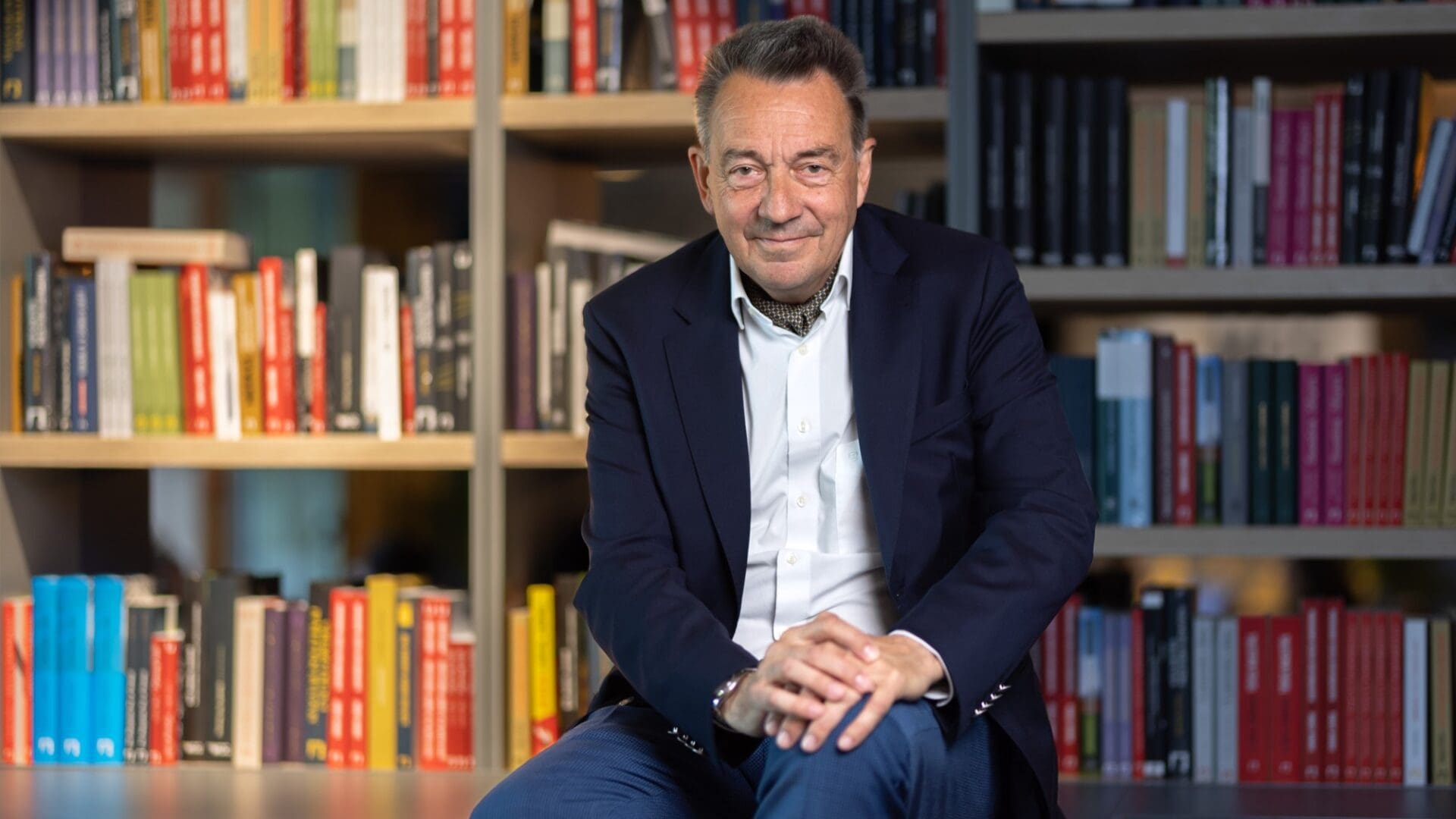Peter Maurer is a Swiss diplomat who served as President of the International Committee of the Red Cross (ICRC) between 2012 and 2022. During his tenure, he prioritised strengthening humanitarian diplomacy, involving states and other actors with respect to international humanitarian law, and improving humanitarian assistance through innovation and new approaches. He currently serves as President of the Basel Institute on Governance and is also a member of the World Economic Forum’s Executive Board. During his visit to Hungary, he gave an interview to Hungarian Conservative.
As former president of the ICRC, what do you think are the greatest challenges that are facing humanitarian organisations today?
There are different categories of challenges. Some very old types have been present in humanitarian work since the 19th century, such as access to battlefields, access to prisoners, access to populations in need, raising money, having respect for international humanitarian law. These challenges never changed over the past 160 years. Then you have new types of conflicts: fragmented actors in the battlefields, numbers of non-state armed groups, which are making respect for international law and access to people that are suffering more difficult. You have new weapons coming to the battlefields, technologically enhanced weapons with destructive power that we haven’t known before. And obviously it’s much more dangerous and much more difficult to act in these circumstances. Finally, we have—as a journalist, you know, better than I do—we have new battlefields emerging, misinformation, disinformation, hate speech, which go beyond just the manipulation of truth. Today’s battles are not only conducted on the battlefields with weapons, but are also fought cyberspace. Today’s warfare is also about narratives, about truths, and interpretations, and winning people’s hearts, influencing their opinions. And this is an area which is difficult to manage for a neutral and impartial organisation. Neutrality and impartiality are in fact essential for humanitarian work.
As a diplomat, your work involved mediating between different sides of conflicts. And while most realise that you need to talk to both sides, some of your visits stirred up controversy. After your meeting with Lavrov for example, you were painted as a supporter of Russia. Do you expect these kinds of press reactions? Does it hurt your work?
It’s a very interesting question. I would say, belligerents in a war never like to acknowledge that there is some intermediation and thus that there is some work to do together with the other side. And therefore, it is always difficult. In that sense, we didn’t experience anything new in the context of Ukraine. It’s not more difficult though than it is in the conflicts of Syria, Afghanistan, or other places. What is new is the media and social media environment and that battles over impartiality and neutrality are much more intensely fought in the social media space. And I think very frankly, humanitarian organisations, like many others, have not necessarily been well prepared to navigate that space. And I think that’s where we are today. We need to learn to navigate the space.
On the other hand, such events let common sense arise, realising that there is a need for international mediation and the importance of the Red Cross’s neutrality in this war and in other wars. It’s always fascinating to see that there is the publicised ‘spin doctor truth’, and then there is common sense. I was criticised many times in my years as president of the ICRC for talking to both sides. At the same time, whenever I was criticised, I got a lot of letters in support of ICRC’s mandate. It was my job to be a neutral intermediary on humanitarian issues.
One of my last functions as president of ICRC was to chair the meeting of all the Red Cross and Red Crescent societies worldwide last summer in Geneva. And together with the Russian Red Cross, and the Ukrainian Red Cross, there was a unanimous resolution in favour of neutral and impartial humanitarian work. So, there are people out there who know that this is important.

What do you think the role of diplomacy is in promoting humanitarian values and protecting human rights?
As a person working in humanitarian work and international humanitarian law, I have also learned that the law is never just implemented. It’s important to convince belligerents and states that have influence over belligerents that the respect for international laws and principles is important. And I think that’s what humanitarian diplomacy is. It’s diplomacy in the service of humanitarian laws and principles. And you can’t just think that the Geneva Conventions, that international law is self-executing, and that it happens automatically, or just falls from the sky. So, diplomacy has an important role of understanding the dynamics in the conflict, trying to find actionable compromise between belligerents on humanity, accessing people, clearing roads for people to evacuate, exchanging prisoners, exchanging dead bodies, negotiating humanitarian space. And all this needs strong diplomacy, strong work with all the religions and all the belligerents behind the scenes.
Hungary has been criticised about its laws regarding migration and refugees and its stance on Ukraine. However, there is an increasing number of Ukrainian refugees who are given asylum in our country, although Hungary indeed doesn’t ship weapons to Ukraine. What is your opinion on these issues?
Each and every country has policies, but also international laws and agreements to respect. And then there is always an interpretation of these agreements in the best possible and politically feasible way. Personally, I have no issue with countries making good faith trade-offs. For instance, it is legitimate that for political reasons you make a distinction between accepting refugees and supporting those who stay in a war zone with humanitarian assistance and the delivery of weapons. Given my country’s experience, I find it legitimate not to choose sides in a conflict if your body politics tells you not to choose side. But it is also legitimate to do so for political reasons if this is what comes out of a transparent political process. You may come to the conclusion that for your country, a certain mix of policies is better than another, then you choose the mix of policies which is in your interest. For me, the most important thing is that you keep trying to do the best you can for people affected by war. And you combine it with the best you can do for your own electorate.
The ICRC has also received criticism in the past for not being adamant enough in protecting civilians or diving deeper into conflicts. What is your take on this?
I would say that when I was a Swiss ambassador at the UN, and when I was a president of ICRC, there was no conflict in the world where everybody was always successful in his or her endeavours, and while you make efforts and you do your best to protect civilians, to assist and ensure compliance with the law, it’s very difficult in concrete terms. It’s very easy to criticise those who are at the frontlines and are exposed to danger and other challenges that they don’t do enough. It’s a little bit of a remote criticism, though, which doesn’t take into consideration what is actually happening on the ground. My take has always been that if belligerents would just let us work, we could probably help ten times more. If belligerents respected international humanitarian law, instead of violating it, we would be needed less than we are. But realities are what realities are. And personally, I find the criticism that humanitarians, be it UN organisations, the Red Cross or others do too little very unfair, given that the humanitarians on the frontlines don’t have weapons, while others have weapons and are very much at the origin of violations and killings.

How has the COVID pandemic affected humanitarian work? What do you see as its long term implications?
Two things come to mind. First, COVID has sharpened our awareness of health being a strategically important issue in each and every country of the world. And if you neglect your health care system, you may pay dearly. Secondly, in many parts of the world where we have worked as a humanitarian organisation I was surprised to see that the indirect consequences of the pandemic were even more important than the direct ones. The direct consequences are that people for a couple of days or weeks get out of the productive cycle. But what I have seen is that through the indirect consequences of the measures against the pandemic, in some places, economic life came to a standstill, and this created new humanitarian problems, because people couldn’t go to the markets and sell their goods. And for most of the people in industrialised, developed countries, it was no problem to do remote work and go virtual. But in the Central African Republic, in the Sahara, in Syria, in Afghanistan, people lost their income from the informal economic sector because of the measures against the pandemic. And I was really shocked to see how the pandemic not only created humanitarian problems in health care, but it also created socio-economic problems because of the policies that resulted from the pandemic.
What was the biggest challenge of your career as president of the ICRC?
There is no one specific challenge connected to a particular conflict or location. But the reconciliation of diplomacy and power with the obligations under humanitarian law and humanitarian principles was a daily challenge. The opinions of political leaders differ from the reading of humanitarians. The reconciliation of those two perspectives, humanitarian and political, which is at the core of humanitarian diplomacy, is the biggest challenge.
And what is the proudest point of your career? Is there anything that you would look back at, and say it became your legacy?
I would say that while we may not always have been able to respond to all the needs we encountered, we didn’t miss any of the big conflicts of the world. And we were always present in all those big conflicts. There has been no conflict where the ICRC has not left a footprint. Maybe we did too little, sometimes not enough, but we did what we possibly could. I tried to raise the awareness of humanitarian workers that they need partnerships with other actors in society, that they needed to open up to the private sector, to income-generating activities, to entrepreneurship, to science communities and the civil society at large. And that flooding societies with aid is not an adequate response to today’s complex crises. The ‘learn how to fish’ remains a good image for what humanitarians must increasingly offer.








